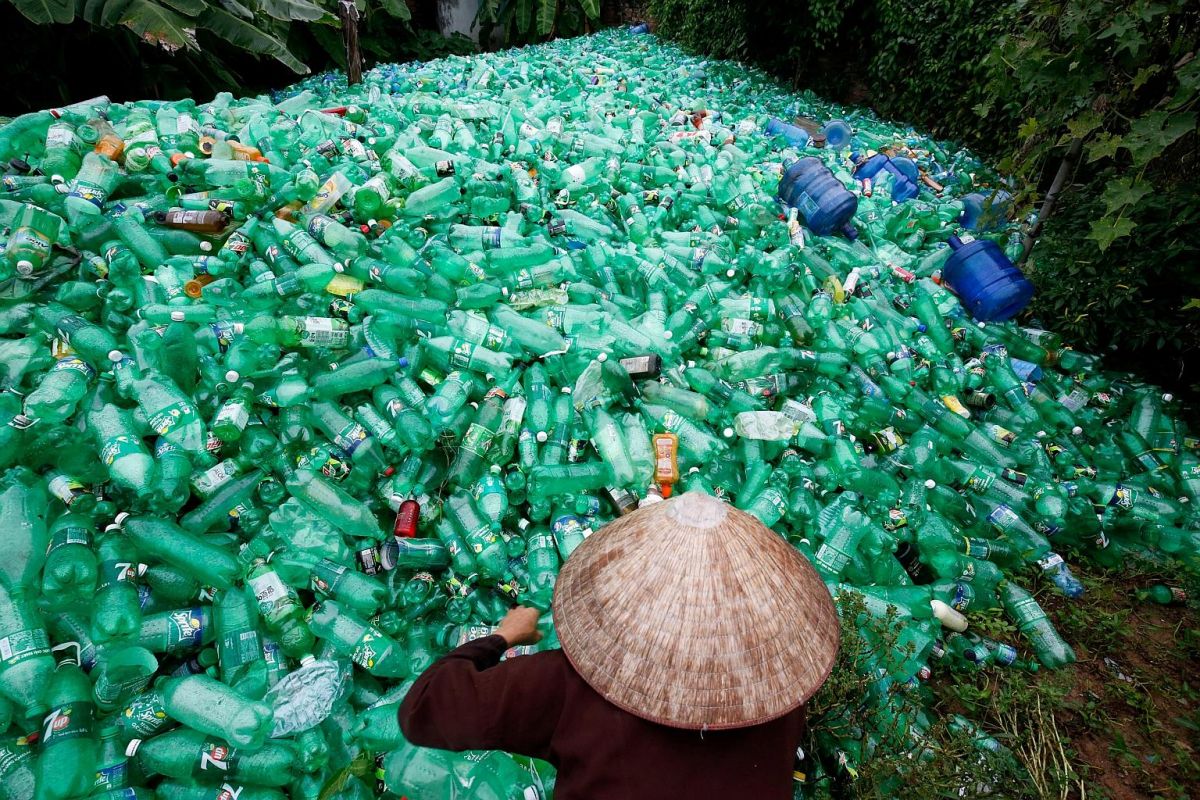Editor's note: Naina Subberwal Batra is the chairperson and CEO at the Asian Venture Philanthropy Network, a Singapore-based non-profit that has offices in 13 countries around the world, including Vietnam. AVPN has over 487 members from 32 countries and undertakes field building activities in Asia while providing a range of networking and learning services to support its members and followers to create meaningful social impact.
We are drowning in plastics. Unless we change our behavior, there will be more plastic by weight than fish in the ocean by 2050. Solving this crisis requires us to do more than just banning plastic straws. We need a paradigm shift. We must adopt deep structural changes to our plastic production and consumption patterns in order to move away from the extractive linear model of ‘take, make, use and dispose’ towards a ‘closed-loop’ circular economy – an economy that is intentionally restorative.
Over the past year, governments in Southeast Asia have been in the hot seat over plastic pollution. Indonesia, the Philippines, Thailand and Vietnam are some of the world’s top plastic polluters. Together with China, they account for up to 60 percent of the plastic waste leaking into our oceans. In our joint report with ECCA Family Trust – released last week – we identify the main challenges as a lack of infrastructure and financing, poor public awareness, poor execution of recycling policies, illegal dumping, as well as unplanned industrial development.
The good news is that governments at both the national and city levels are stepping up their efforts to reduce plastic pollution. Vietnam accounts for six percent of global marine plastic garbage flows or some 0.28-0.73 million metric tons annually. Last week, Prime Minister Nguyen Xuan Phuc approved the National Action Plan on Ocean Waste Management by 2030. This plan aims to reduce plastic debris discharged into the ocean by 75 percent and end the usage of disposable plastic products and fishing gear in coastal tourist resorts within the next 10 years. At the city level, the Chairman of the People’s Committee of Phu Quoc District has signed up to the WWF Plastic Smart Cities initiative announced last month and launching in February next year. WWF is working with district officials to develop an action plan to fight plastic pollution, establish circular economy projects, and test innovative solutions. These efforts are laudable but we cannot rely on governments alone. To solve the problem, we need coordinated multi-stakeholder support for a circular economy.
Consumer-goods companies have been struggling to rethink their plastic packaging but an investment fund in Singapore may drive change. Last week, investment management firm Circulate Capital closed its debut Circulate Capital Ocean Fund with a total capital commitment of US$106 million from PepsiCo, Danone, Unilever, and The Coca-Cola Company, among others. The fund will make debt and equity investments across the entire plastics value chain – from alternative materials to waste management infrastructure to advanced recycling technology. It seeks to demonstrate that investments in turning plastic from waste into a resource can provide attractive financial returns.
More and more closed-loop circular economy initiatives are emerging amongst local communities and entrepreneurs. In Vietnam, for example, Evergreen Labs develops and supports businesses to address pressing environmental and social challenges, including waste management. One of these is ReForm, a scalable social franchise model. ReForm uses the existing infrastructure of garbage collection centers and transforms them into small production facilities. The centers are equipped with low-cost machinery that enables workers to produce new tradable products. In addition to transforming low-grade plastic that might not otherwise be collected or reutilized, it improves the income of waste pickers, generates new jobs, and creates a local circular economy. This example represents a low-cost solution that, when scaled and connected to other efforts, could potentially move the needle on plastic waste.
These questions of scale and coordination are important ones. And it is where networks like AVPN demonstrate their true value. We help to remove barriers to scale by providing platforms and mechanisms that connect investors and capacity-builders with social enterprises and non-profits who require both financial and non-financial resources. The AVPN Southeast Asia Summit, happening in Bali, Indonesia in February next year, is one such platform that helps social investors build their awareness of new opportunities and find local collaborators. Similarly, our Climate Action Platform (CAP) brings together the widest possible range of stakeholders to collectively develop the scale, support and investment to tackle climate change. Projects like those by Evergreen Labs are exactly the kind of opportunities that the CAP presents to investors.
I believe there are sizeable and valuable opportunities to create a circular economy within the plastics value chain in Southeast Asia. But at present efforts are too fragmented and uncoordinated to have impact scale. The Ellen MacArthur Foundation estimates that 95 percent of the material value of plastic packaging – valued at between US$80 and $120 billion annually – is lost to the global economy after a brief initial use. If we – investors, businesses, governments, and consumers – can move the plastics industry into a positive spiral of value capture, we will do an enormous service to both our oceans and our economy. A world in which plastic never becomes waste is not beyond the realms of possibility. But for it to become a reality, we need to work together.

















































